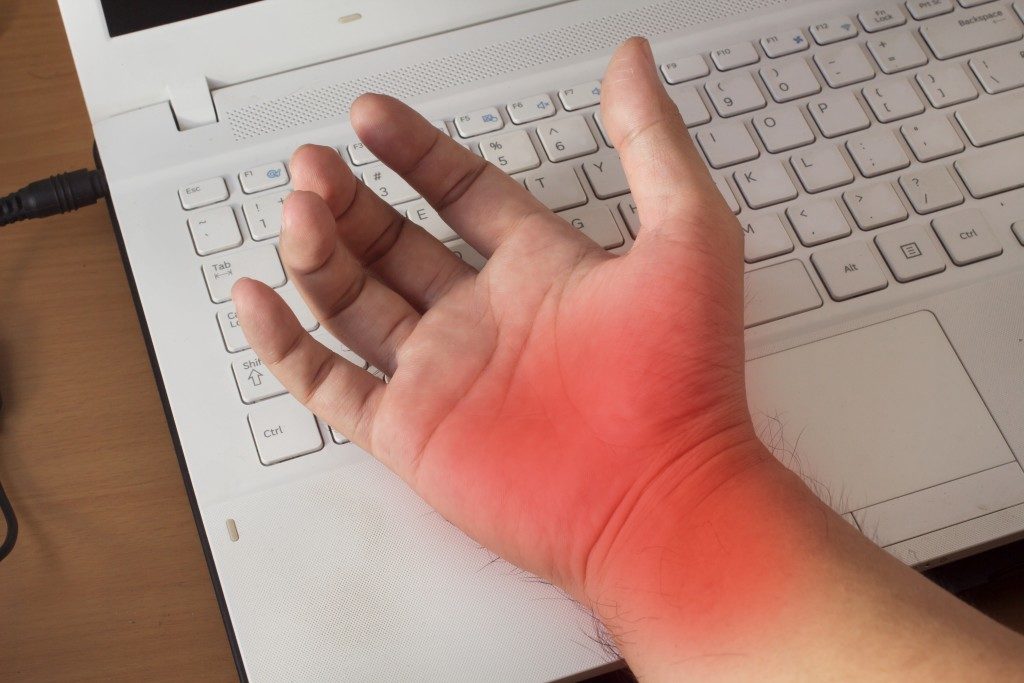An average employee works for 40 to 50 hours per week. To many, an entire day is spent sitting in front of a screen and typing on a keyboard. However, experts warned that this kind of lifestyle is unhealthy. Inactivity for long periods of hours can lead to serious injuries, illnesses, and other health problems. Here are the things that you should look out for:
Carpal Tunnel Syndrome
A common condition that office workers complain about is carpal tunnel syndrome. It occurs when one of the major nerves found in the hand is compressed as it travels to the wrist. If you think you suffer from carpal tunnel syndrome, visit a neuropathy doctor in Long Beach or anywhere in Los Angeles for examination and treatment.
Carpal tunnel syndrome is caused by repeating the same hand or wrist movements for prolonged periods of time. People who have it may experience numbness, tingling, burning, or pain in the thumb, index, middle, and ring finger. Sometimes, the numbness, tingling, burning, or pain travel to the forearm and toward the shoulder. Other symptoms include clumsiness in the hand and swelling.
After diagnosis, a doctor may prescribe pain medications or require you to use a wrist splint. In some cases, surgery and physical therapy might be necessary to correct the problem.
Musculoskeletal Disorders
People who spend the majority of their day sitting within their desk may develop musculoskeletal disorders or MSD. MSD usually affect the neck, back, shoulders, and upper limbs. There is no single cause of MSD; it develops over time and, usually, several factors are involved. Risk factors include handling heavy loads, repetitive movements, awkward and static posture, dim and cold office, and sitting or standing in the same position for hours.
MSD may lead to disability and cause the person who has it to resign from work. The symptoms of MSD include redness and swelling, pain, discomfort, numbness, tingling, burning, stiffness, and reduced range of motion and strength of the affected body part.
Sick Building Syndrome
Sick building syndrome, or SBS, is a condition caused by poor indoor air quality that is often among offices and other enclosed spaces. The condition is often difficult to diagnose because symptoms are similar to the common cold and flu. SBS is a sign that your office has poor ventilation, high amounts of dust, mold or fungus, or the air is contaminated with toxic gases such as carbon monoxide and ozone.
Mental Health Disorders

Unfortunately, employees are at risk of developing mental health disorders such as anxiety and depression. According to the data from the U.S. National Comorbidity Survey, about 18% of Americans employed experienced symptoms of mental health disorder in the past month.
Stress caused by bullying, harassment, and poor working environment may cause mental health disorders among employees. Symptoms are varied from person to person, but mental health disorders often lead to high absenteeism and decreased productivity.
Over time, other illnesses and injuries may appear. Obesity, diabetes, and cardiovascular disease — conditions caused by inactivity — may also affect employees. The best way to avoid getting sick is through regular exercise and by eating the right kinds of food. You can also do stretches on your desks or maximize the physical activity you get by taking the stairs instead of riding the elevator.



